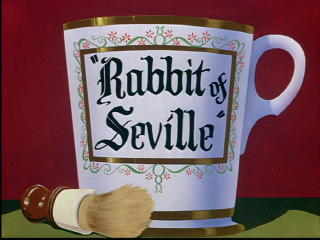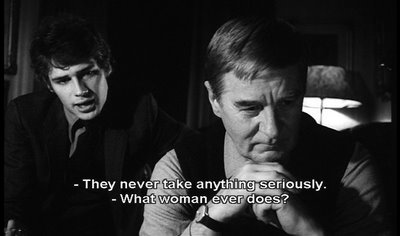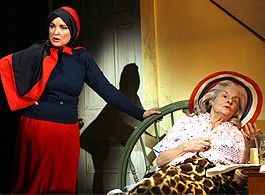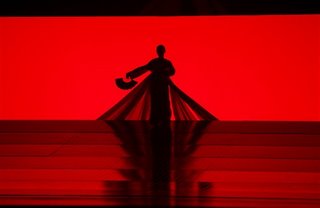 Cobra Killer is the Carl Stalling of gonzo tech-punk. Few bands so habitually confound expectations and so cleverly weave strands of disparate musics into consistent albums.
Cobra Killer is the Carl Stalling of gonzo tech-punk. Few bands so habitually confound expectations and so cleverly weave strands of disparate musics into consistent albums.As I wrote in this week's Time Out (link not up yet for some reason), Cobra Killer is scheduled to hit Tonic tomorrow evening. Gina V. D'Orio and Annika Line Trost are off the charts (to quote Dina Martina) live, not to mention among the nuttiest interviews I've ever done, even if it was by email. And since they cancelled their past two NYC shows at the last minute, all digits are crossed for this one.
While Cobra Killer's often been compared to Peaches because they all are women who at one point relied on basic electronics, the comparison treads water, especially now that Peaches' radical rep solely rests on her lyrics, as she's considerably streamlined and beefed up her sound, and the days of triggering her sampler on stage have given way to touring with a full band (more later on last week's show at Irving Plaza, if I can find some time). Cobra Killer, on the other hand, confounds pretty much all the expectations you could have from people making music, down to their relationship with their instruments (they basically shun them live). What they play is deceptively simple but on stage they take it so far as to be in a league of their own.
For now, here are a few tunes to enjoy while counting down the minutes to the show.
"H-Man-A Psychocat" and "Loaders in Octobers" are pulled from CK's sophomore album, 2002's The Third Armpit. Released on the Australian label Valve and relatively hard to find, it marked the band's transition from saturated digital-hardcore ADD to cleaner swinging Berlin.
Plus! Special extra-super-duper geek-out bonuses with…side projects! Because Trost and D'Orio just can't stop the music, and I can't stop hunting it down. D'Orio has released the solo CD Sailor Songs on Australia's excellent label Dual Plover; minimalist half-booty musicalizations of American high-school dramas with Patric "ec8or" Catani under the name A*Class; and Bass Girl, a collaboration with Like a Tim, from which "I Only Have Eyes for You" is pulled. Meanwhile, Trost has released two solo CDs; "I Was Wrong" is on the latest one, Trust Me (2006).











